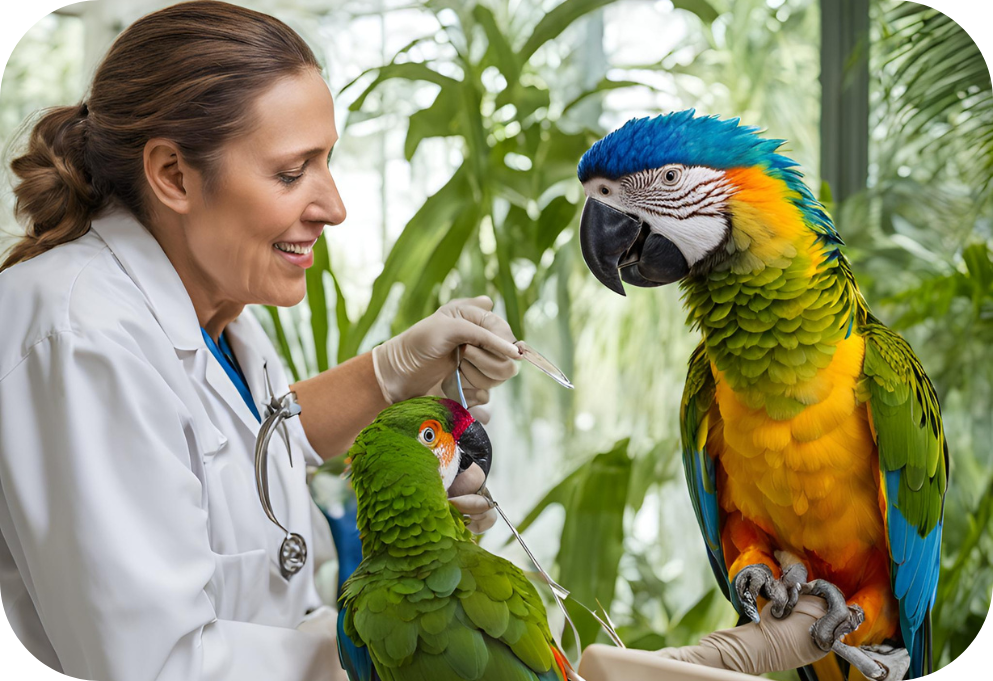Vaccination Schedule for Parrots: A Complete Guide

Every bird owner wishes to have his pet in the best possible shape. Most people believe parrots do not need any special veterinary care, however, they can be prone to a few medical conditions that can be prevented with vaccination. It is important for everyone who owns a parrot to know and understand the vaccination schedule in order to provide the best possible future for the pet. This article explains a number of key vaccinations for parrots, the appropriate age of vaccination, and additional preventative measures necessary for the pet.
Is it Necessary to Vaccinate Parrots?
Since the case with parrots is very different from cats or dogs, an entire vaccination schedule is not a necessity. There are however certain vaccinations that must be gotten as they prevent a number of potentially fatal diseases. In the case of parrots the following vaccination factors must be kept in mind:
- The species of the parrot.
- The geographical area in a which the pet is located and the number of specific diseases in that area.
- Any contact with other birds or wildlife.
All these factors make it imperative to talk to an avian veterinarian who would be able to provide the exact requirements of the parrot.
Most Common Vaccines available for Parrots:
Below is the list of the most recommended vaccinations that a parrot should get:
- Polyomavirus Vaccine
- What It Is: It is a contagious medical condition that is riskier for younger parrots and can be deadly. Not only does it cause feathers to grow abnormally, but it can also cause rapid weight loss.
- Ideal Schedule:
- For children 4 to 6 weeks of age: The first jab is recommended.
- Every overcrowded place or other parrots: every year after the first.
- Vaccine for Pacheco’s disease
- What it Prevents: The deadly disease which is caused by a type of herpes virus which is potentially fatal in all species of cockatoos.
- Recommended Schedule:
- Administered depending on risk (for example, birds in cages or bird breeding locations).
- Recall: As the vet directs in special conditions that require precaution.
- Avian Influenza Vaccine (only applicable in some regions)
- What it prevents: An avian related illness which leads to severe respiratory problems.
- Recommended Schedule:
- Recommended only if you live in regions with reported cases or your parrot has contact with wild species of birds.
- Call your vet for more precise guidelines according to the region.
Factors that affect when a vaccine should be administered in birds.
- Location:For birds who live in cages above the ground or attend bird fairs are far more exposed to pathogens and may need vaccinations even if it is not advertised.
- Type of parrot:Certain species of large parrots including macaw or cockatoos are prone to certain diseases more easily.
- Relocations:If you constantly relocate with your parrots then they might need extra vaccination to prepare for other endemic diseases that they might not have experienced.
Final Thoughts and Tips:
Vaccinations is one part that is essential to keeping your parrot healthy and safe, here are a few extra tips to help you maintain your pet bird:
- Vet Appointments:
- Get the parrot checked up annually to keep track of its improving health.
- Hygiene:
- Cleaning ointments, and washing feeding bowls hundreds of times to prevent any rising infections.
- Bird Isolation Reserve
- It is good to keep new birds within a separate boundary for about 30-45 days before introducing them to your pet parrot for the purpose of disease control.
- Proper Nutrition
- A proper and adequate nutrition diet should contain enough vegetables, fruits and pellets of the highest quality.
Vaccine Related Misrepresentation and Fallacies
- ‘Every parrot should be administered every shot there is.’It is not obligatory for a bird to receive all shots. The vaccine type depends on the lifestyle and risk factors of your parrot.
- ‘Parrots who have received the vaccine don’t require to go to the vet and be checked frequently.’Vaccines are not the opposite of care, they are the most insolent changeover. Routine vet checkup in pertinent intervals is even more vital to help detect serious illnesses at very incipient stages.
Final Remarks
There are multiple diseases which have no treatment but can be avoided, for example vaccines help to avoid such cases. Not every parrot needs vaccination, however, there are methods that can assist you so be sure to schedule a meeting with an avian professional veterinarian.
Preventative measures can guarantee your parrots spend a happy and long life full of health if the person in charge remains informed and anticipatory of the bird’s well-being.
Book an appointment with your avian veterinarian to assess the immunization needs of your parrot and assist them in protecting your parrot for times to come.